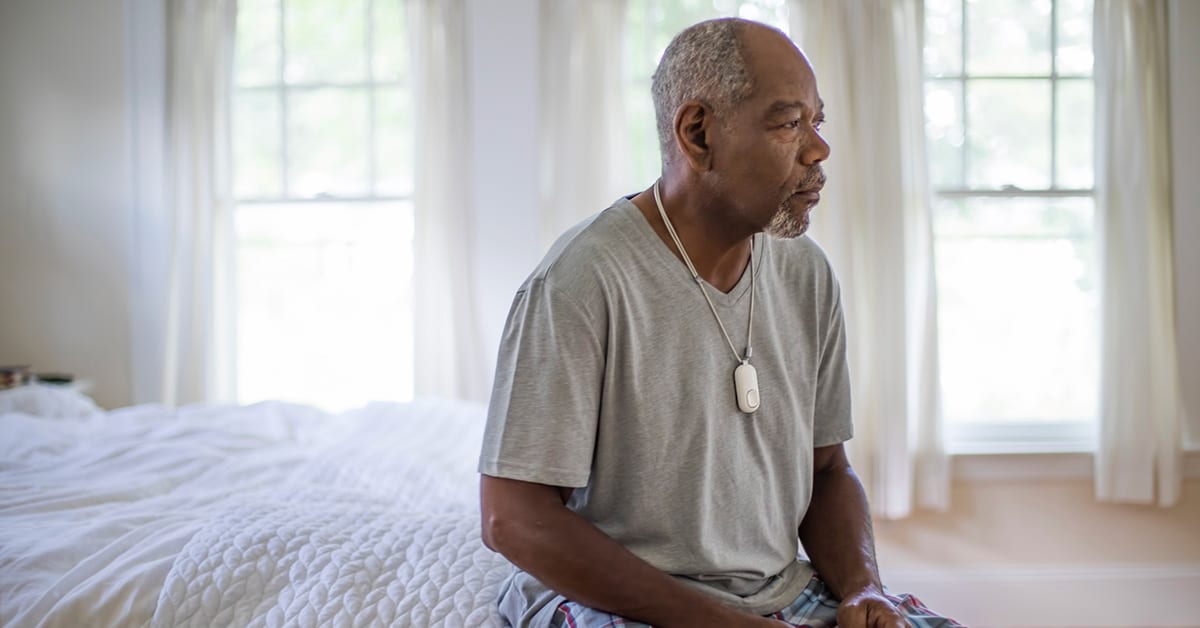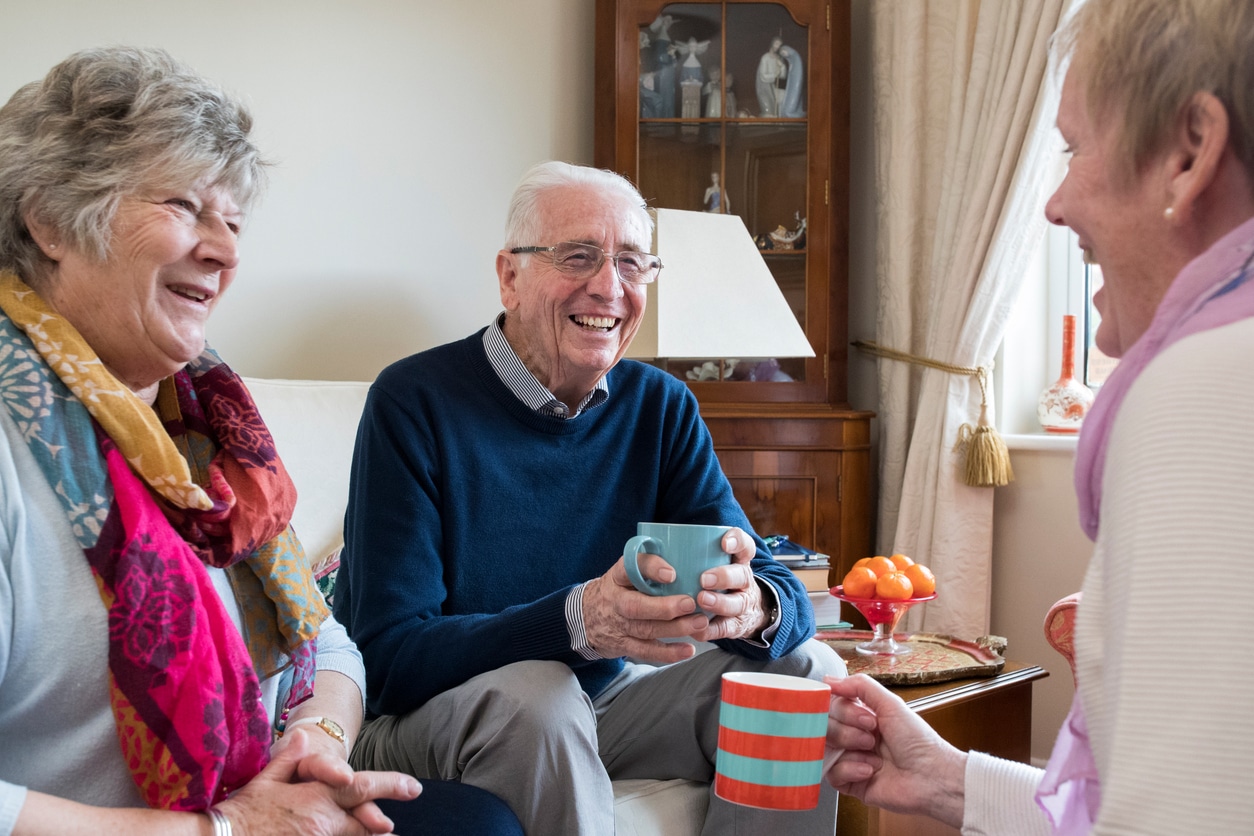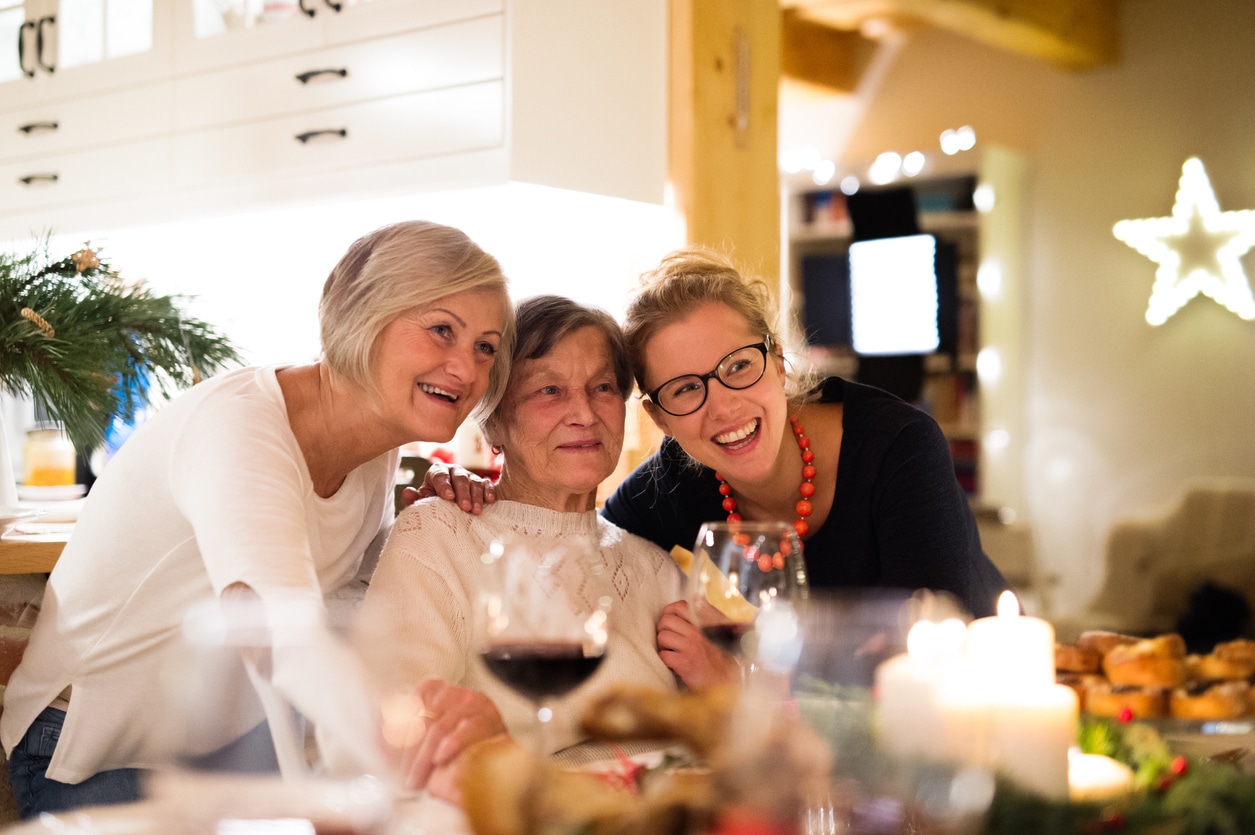Understanding how to cope with grief in the elderly can be a challenge. There are typically many other changes taking place at the time of diagnosis. Living in an ageist society also means there is some anxiety around the aging process. This, coupled with the challenges and changes in aging, means knowing how to deal with grief in the elderly can be complicated.
Although change and loss can be very painful, they are a cornerstone of our existence. As we age, loss becomes more common. Whether it’s work, loved ones, independence, or our health, we’re destined to grieve at some point. It’s important to remember that grieving is a normal and healthy response to these changes. Although it can be difficult, there is incredible value in working through it.
Signs of Grief in the Elderly
So, how do the elderly experience grief? To put it simply, grief often rides like a wave. A grieving person can usually find moments of levity inside the darkness. They may find something to spur a smile or a moment of joy. However, it’s important to recognize the signs of grief to support those going through it.
- Recent or upcoming loss
- Sadness about changes/loss
- Moments of pleasure and happiness amid the grief
Each individual grieves differently. Everyone will have a different experience with the grief process for different losses. Some elderly people may grieve the many losses that come with a move to a nursing home. It’s important to distinguish what is grief and what is depression in these instances. This may be diagnosed as depression. If antidepressants are given, they could have an adverse effect on the healthy grieving process. You can learn more about recognizing depression in the elderly here.
What Are the Stages of Grief in the Elderly?
People commonly experience five different stages of grief. These include denial, anger, bargaining, depression and acceptance.
Whether it’s the loss of a loved one or a significant life change, people may initially respond with denial. They may try to pretend it’s not happening. This is a coping mechanism to try and manage sudden and intense emotions.
To mask their true emotions, they may become angry. This anger may be directed at other people or situations. This is an emotional response rather than a rational one, so it can be hard to manage.
People experiencing grief may also feel helpless. As a way to cope, individuals may try to regain control through bargaining. They may focus more on their religion or start wondering about “what if?”. Like denial, this is a defense mechanism to try and postpone feelings of sadness.
The depression stage of grief may see individuals become more isolated. They may withdraw and become quieter. Depression is a complex issue and can leave some feeling overwhelmed. This is a natural stage of the grieving process but if an individual appears to be stuck in depression, they should seek help. You can learn more about senior depression help here.
The final stage is acceptance. This doesn’t mean they have moved on from grieving altogether. Instead, it means they have come to understand that this loss is a part of their life. They are able to see there can be good days ahead, even if the loss has had a significant impact on their life.
Remember that not everyone will go through all five stages of grief. They may also experience them in a different order. It’s important to help them recognize their grief triggers throughout the stages so they can more effectively manage their emotions.
What Does it Mean to Recognize Your Grief Triggers?
The grieving process includes a whole range of different emotions. Some things may remind them of their loss and trigger an intense emotional reaction. This is natural. However, by recognizing these triggers, they can better process their emotional experience and reduce anxiety.
Writing down their emotions in a journal and sharing them with others can help track moods. It can also help them identify what caused periods of emotional intensity. Recognizing these triggers makes it easier to process and prepare for them.
How Long Does Grief Last in the Elderly?
There’s no timeframe for grief. It varies depending on the individual and their experience of loss. Some people may start to recover in 6-8 weeks. Others may still be going through the grieving process years later.
As grief is such a personal experience, it’s important to provide consistent support. Understand that some people may take longer to feel better than others. Some people may also experience happy times before being affected by grief again. Big life changes require time to adjust to. When it comes to helping someone know how to cope with grief, the best thing you can do is be ready to offer support.
Ways to Support the Grief Process in the Elderly
Referring your patient to a therapist or grief counselor can help give them a space to process grief. In addition, getting the senior’s loved ones involved can help ease the stress of everyday life. Here are just a few of the ways you can encourage families or neighbors to help:
- Creating space for acknowledging that a loss has occurred
- Helping with daily living tasks (meals, laundry, etc.)
- Suggesting activities that the individual typically enjoys
Understanding the cause and process of grief is essential when creating a treatment plan. Allowing someone to appropriately grieve their losses is an important part of healing. By being open and supportive with them, you can help them decide how to help them cope with grief in the best way possible.




